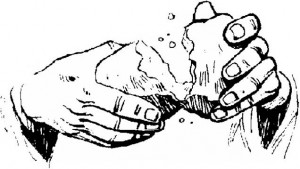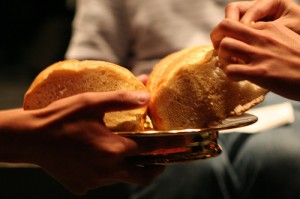Sports Illustrated’s Andy Staples has written an excellent article on Baylor football coach Art Briles that centers on Briles’ time as a high school football coach in west Texas and in the Texas panhandle. Briles developed his spread offense in response to a quarter-finals playoff loss to Panhandle’s Panthers back in 1984. Staples’ account of that game includes a vivid description of what high school football was like before the days of overtime. Back when tie games were decided by penetrations and first downs, it wasn’t uncommon for teams to play for the penetration instead of the touchdown. It’s a very entertaining read that references lots of our regional towns and teams, including Canadian’s outstanding coach who was a star running back for Panhandle in that 1984 win. You can get to the article by clicking here.
~~~~~~~~~~~~~~~~~~
In addition, David Moore has written a nice column in the Dallas Morning News regarding the Cowboys’ chances at a playoff spot. You figure the Cowboys have to win three in a row to make the postseason. And this team hasn’t had a three game winning streak since 2010. I don’t know how the worst defense in the NFL and the statistically worst defense in franchise history is going to stop the Packers this week, regardless of whether Aaron Rodgers suits up for Green Bay. Josh McCown, Chicago’s back-up QB, looked like Jim McMahon Monday night. David’s article is here.
~~~~~~~~~~~~~~~~~~~
 I would like to make the case in this space today that every single time the term “break bread” is used in the New Testament Scriptures, it’s referring to what we call today the Lord’s Supper. The phrase is never used to describe a common meal; it always represents or points to the Lord’s Meal. To illustrate this, we have to use a little Greek. Not a lot; just a little.
I would like to make the case in this space today that every single time the term “break bread” is used in the New Testament Scriptures, it’s referring to what we call today the Lord’s Supper. The phrase is never used to describe a common meal; it always represents or points to the Lord’s Meal. To illustrate this, we have to use a little Greek. Not a lot; just a little.
Klasas is the Greek word for “break” we find in our New Testaments. It’s the common word for “break.” There isn’t another word for it. It means “to break” like you would break your leg, break a toy, or break your mom’s favorite picture frame. Artos is the Greek word for “bread.” In both the common language and in our New Testaments, this word can have two meanings. The main meaning is simply a piece of common bread or a loaf of common bread. The secondary meaning is “food” or “a meal.” To “eat bread” in many places in Scripture is to eat food generally. The prodigal son in Luke 15:17 says his father’s hired men have “food” (artos) to spare. Jesus’ disciples are criticized in Matthew 15:2 for not washing their hands before they eat. Period. The NIV leaves out “bread” (artos). The Greek text says “…before they eat bread.” The same thing happens in Mark 3:20 when the disciples are so crowded in the house they are “not even able to eat.” Most English translations leave it at that: “eat.” The Greek says “…not even able to eat bread.” But the scholars understand that a full meal is meant by the context. There are a few other places in the New Testament in which “bread” means a meal. The last one I’ll mention is in 1 Thessalonians 3:8 where Paul claims not to have eaten “anyone’s food without paying for it.” The word translated “food” is artos. Bread.
You might think that the term “breaking bread” would be a fairly common term in ancient times, that it would refer, as it does in today’s English, to eating a common meal. When I say we’re going to the Bentleys’ house to break bread, you and I both know we’re having some kind of barbecue and fresh vegetables, peach tea, and a fancy dessert. Hasn’t it always been that way?
No.
According to the Thesaurus Linguae Graecae (TLG) database, a record of every single written word in the Greek language from the very earliest writings dating to about 1400 BC through the year 1453 AD, no one in history ever used the term “breaking bread” before the New Testament. For fourteen centuries — every novel, every song, every poem, every play, every government document, every worship order, every instruction manual, every word of every thing ever penned in that language — nobody ever combined “klasas artos” or “arton klao” (breaking bread) until Paul and the apostles. They were the very, very first. After the New Testament time, the phrase is only found in the writings of the early church fathers, always in reference to the Lord’s Supper.
“Breaking bread” is not a common Greek phrase. It’s not an every day term. It doesn’t mean “have a meal.” It means “share a meal with Jesus.”
The term is used for the first time ever in the Greek language in the New Testament. We find it there eighteen times:
At the feeding of the 5,000 in Matthew 14:19, Mark 6:41, and Luke 9:16
At the feeding of the 4,000 in Matthew 15:36, Mark 8:6, and Mark 8:19
At the last supper in Matthew 26:26, Mark 14:22, and Luke 22:19
At the Emmaus Supper in Luke 24: 30 and 24:35
In Luke’s account of the first days of the Church in Acts 2:42 and 2:46
In Troas on the first day of the week in Acts 20:7 and 20:11
On a ship at sea in the middle of a storm in Acts 27:35
In Paul’s Lord’s Supper discussions in 1 Corinthians 10:16 and 11:24
In every case, this is Jesus eating and drinking at table with his disciples. The term is always used to describe the Messiah sharing a meal with his followers. This is the worship language of the early Church. Just like “born of water and the spirit” means “baptism” and just like “separate and apart” means it’s time to pass the collection trays, “breaking bread” means “Lord’s Meal.” It didn’t need any further explanation. Just like the sports page today doesn’t take the time or the space to explain what “touchdown” means in a story about the football game, the writers of the New Testament used “breaking bread” and all the hearers and readers knew what was meant.
Luke makes it easy to follow the thread:
When he feeds the multitudes, Jesus takes bread, blesses it, breaks the bread, and then gives it to his disciples (Luke 9:16).
At the Passover meal on that last night, Jesus takes bread, gives thanks, breaks the bread, and then gives it to his followers (Luke 22:19)
At the resurrection dinner in Emmaus, Jesus takes bread, blesses it, breaks the bread, and then gives it to the disciples (Luke 24:30)
“Jesus was made known to them,” Luke writes, “in the breaking of the bread” (Luke 24:35)
We shouldn’t be surprised to find the first church continuing the faithful practice of their Lord:
The disciples continued in the breaking of the bread (Acts 2:42)
The disciples broke bread daily in their homes (Acts 2:46)
The disciples gathered to break bread (Acts 20:7)
Knowing that the term “breaking bread” is an exclusively Christian term and refers only and always to Christ’s presence at the table where he eats and drinks with his disciples has some interesting ramifications. But I’m out of time and space today. Let’s continue the discussion tomorrow.
Peace,
Allan
Leave a Reply